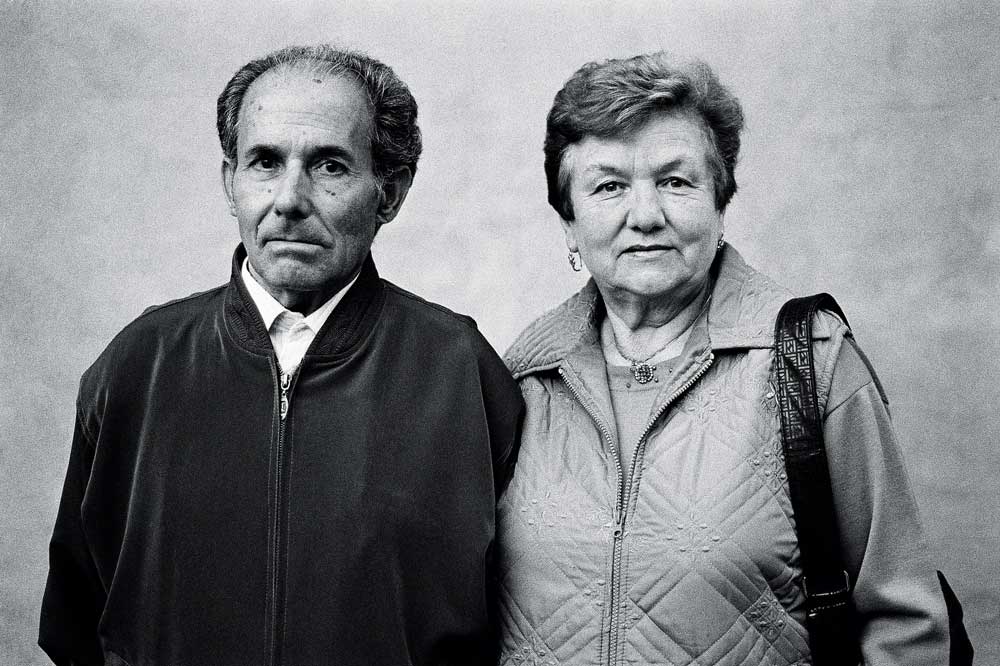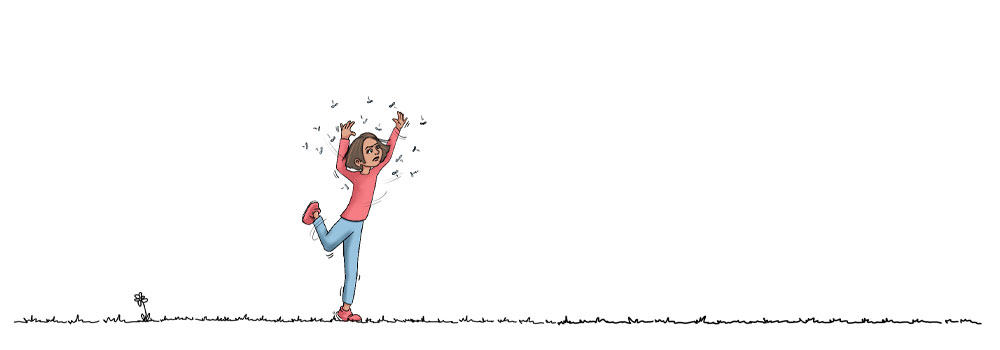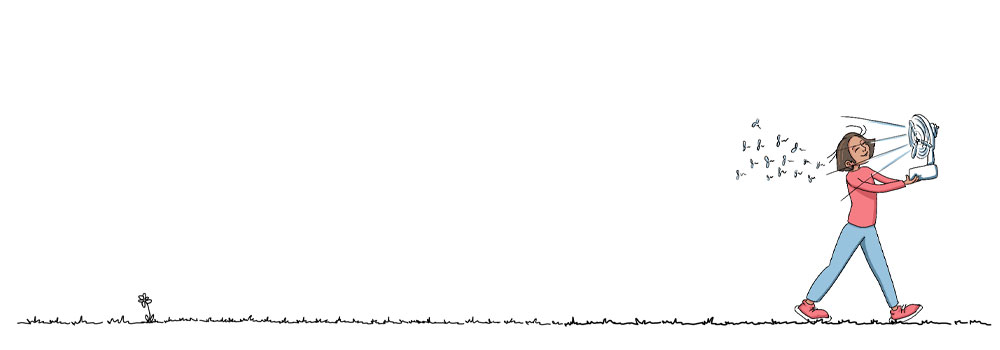Task 5 – Accept what is
Problem
Accept what is

At the workshop with Morten Krogvold in picturesque Pitigliano, I was feverish. I wanted to take street photos filled with life and energy, but lacked strength. The feelings of rritation and despair increased inside of me. Only after several days without getting a picture was I able to accept the situation. I went to the cemetary, something which maybe reflected my state of mind, and noticed that there were pictures of couples on many of the graves. These couples were buried together. To make it easier for myself, I stood at the big piazza and waited until a couple appeared, asked if I could take their photo in front of a simple wall and thus avoided relating to all other possible subjects. Instead of hunting I trapped. It was a good experience, but the solution first appeared when I accepted that I was ill and had to change plans.
PITIGLIANO, ITALIY, 2004. Photo: Torkil Færø
Solution
Feeling frustrated
Injustice is a feeling that comes naturally and one we all experience from time to time. To a great extent depression is due to a lack of acceptance for being sad and anxiety is an intol- erance of being anxious. At my doctor’s office I meet a lot of people who are marked by irritation, anger, bitterness and complaining – a poisonous combination. Such people are sick more often than others are. The first step towards recovering is certainly accepting some things as they are. Acceptance is not a passive resignation. It is an act of identifying and accepting circumstances that we cannot change, so we can direct our energy towards those we can influence.
Frustration, when does not lead to productive change, drains our energy and lowers our life satisfaction. Irritation, anger and bitterness are natural feelings that we are supposed to have. In small doses they can provide us with energy to get what we want. But in larger doses they can be destructive. We can choose to turn our attention away from these feelings, but it requires practice. If the brain gets used to feeling them regularly then it will become addicted to them. It will long for the rush it gets from irritation if it hasn’t had one in a while. The brain doesn’t know what it needs but trusts that we provide the right input.
Are irritation, anger and bitterness something that leaves its mark on your everyday life? Do you know someone who experiences this? How does it affect their surroundings?
On a scale of 1 to 6, how relevant is this issue for you?:

Solution
Accept the circumstances
t is difficult to be present in one’s life when irritation, anger and bitterness are exclusively focused on. This state is almost incompatible with taking good pictures (even if being a little irritated about a picture you missed may spur on additional effort). As photographers we quickly learn how vain it is to complain that the weather, light or daytime conditions are bad. The pictures will not improve by complaining. Rather, you have to make the best out of the material and tools and energy you have available that day. If it rains, you can use the reflecti- ons on the asphalt, puddles and drops on the windows. If it is sunny, you can experiment with clouds – and contend with the big constrast that results.
Airports are good places to practice not getting annoyed over queues, delays and other unforeseen events. Try instead to be happy because you have more time to read the book you have with you.
Through the camera you learn to accept the moment. Uneasiness, frustration, sadness and anxiety are feelings that are difficult to control, but it is better to accept them than fight them. The good thing is that the ban feelings will be weakened.
PHOTO ASSIGNMENT:
Grab the camera, take a deep breath, go out and take pictures. Accept the conditions. Just think, “This is how the world looks to me today.”
How useful was this task for you on a scale of 1 to 6?:
BOOK SUGGESTION: Mindfulness Meditation for Everyday Life by Jon Kabat-Zinn

❞ It is always important to continue to take photographs, regard- less of the resistance, weather conditions or how difficult the situation is.
Steve McCurry
❞ When you accept what is, what is changes.
Carl Rogers
❞ Understanding is the first step to accep- tance, and only with acceptance can there be recovery.
J.K. Rowling
[note_editor]

